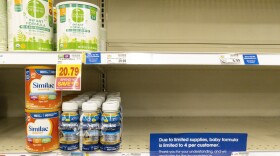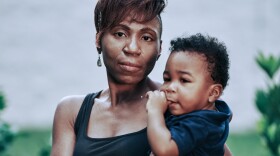-
Nirsevimab is in short supply but other preventative measures - including the RSV vaccine for pregnant people - could help keep your baby safe.
-
fight is developing in Florida's legislature over a measure that would allow fire stations and hospitals to install boxes where distressed mothers could leave their unwanted newborns.
-
The U.S. birth rate has been trending downwards over the past 15 years — so the news that the number of births actually rose in 2021 is making headlines.
-
We look at the ongoing property insurance crisis in Florida and what lawmakers are trying to do to fix it. How the national baby formula is affecting families in South Florida. And an intentional shipwreck that’s helping coral reefs thrive.
-
Abbott, one of the largest formula makers in the U.S., has reached an agreement with the government to bring a closed factory back on line. And the FDA is easing some restrictions on imported formula.
-
The latest data shows 43% of baby formula products in the nation were out of stock. Some families say finding it has become a full-time job. They're anxious about the future.
-
“In the mommy blog world breast milk is called liquid gold and it’s done so for a reason," said Rep. Fiona McFarland.
-
Parents of children too young for vaccines are exhausted. As omicron surges, they keep trying to protect their kids. But some feel isolated and even forgotten by those who just want to move on.
-
After baby Dorian Bennett arrived two months early and spent more than 50 days in the neonatal ICU, his parents received a bill of more than $550,000 — despite having health insurance.
-
Years ago, doctors sometimes lied about whose sperm they used for artificial inseminations. Could it happen now? Some argue regulation is weak in the multibillion dollar fertility treatment industry.
-
Doctors used to worry that antiretroviral drugs were too powerful for HIV-positive newborns. More evidence is emerging that, in fact, early treatment can be safe and effective.
-
An expert panel wants the Food And Drug Administration to withdraw its approval for Makena, because a large study shows the drug doesn't work. But some doctors say the evidence isn't clear-cut.
Play Live Radio
Next Up:
0:00
0:00
Available On Air Stations











